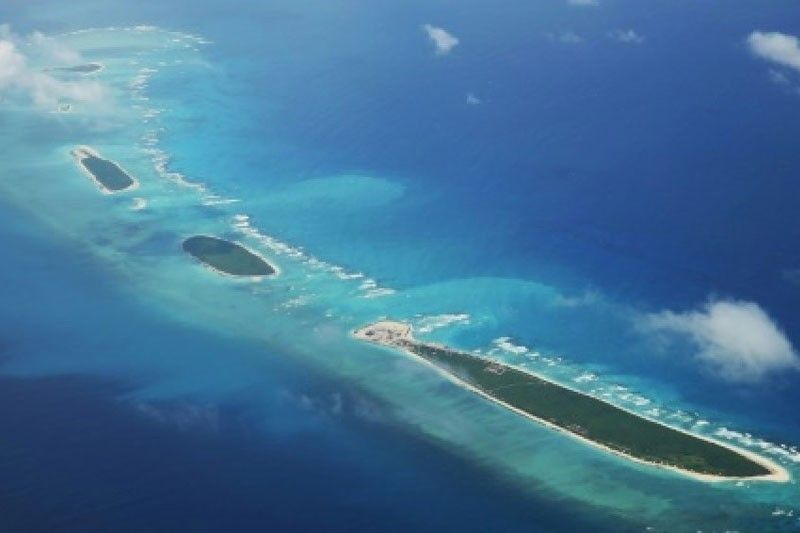Philippines sovereignty to be upheld under EDCA – DND

MANILA, Philippines — With more American troops soon joining Filipino soldiers at four new military facilities under the Enhanced Defense Cooperation Agreement and as the Philippines prepares to carry out joint maritime patrols with the United States in the South China Sea (SCS), Defense Secretary Carlito Galvez yesterday gave assurance that Philippine sovereignty would be upheld under EDCA.
Thanking senators for their support, Galvez said “these endeavors that we are undertaking are consistent with the President’s foreign policy of being a friend to everyone and enemy to no one.”
Galvez, a former chief of staff of the Armed Forces of the Philippines, stressed that “it is the DND (Department of National Defense)’s mandate to secure and defend our sovereignty and sovereign rights, such as the freedom of our people to fish in our own waters.”
As the Philippines readies for joint maritime patrols with its US counterparts amid continuing territorial disputes with China in the SCS and WPS, he emphasized that the Philippines “shares the vision of like-minded nations in ensuring freedom of navigation and a peaceful, stable and free Indo-Pacific.”
“As a member of the international community, we have a responsibility to protect the global commons to prevent humanity from constricting itself by ensuring that vital sea lines of communications are kept open,” he said.
“We must also promote responsible stewardship over our marine resources, which are being threatened by overfishing and manmade ecological degradation,” he added.
With some sectors expressing worry over how the EDCA will now allow more American soldiers to stay in the country and even store equipment in four military bases, Galvez highlighted that it is “truly encouraging that our distinguished senators are aware of the importance of the EDCA and joint maritime patrols to our national interest. I thank them again for their support.”
He said the DND thanks Senators Francis Tolentino, Francis Escudero and Sherwin Gatchalian for sharing their favorable sentiments on recent developments in the country’s defense and security policy following last week’s visit of US Defense Secretary Lloyd Austin III to the Philippines.
“I am in favor of defense/security cooperation ‘upgrades’ with reliable allies like the United States, considering the evolving regional conditions and challenges, so long as this is anchored on solid constitutional foundations and for the greater interests of the nation and the EDCA is evidently a good model,” Tolentino was quoted as saying.
He expressed hope that local government units will also realize that the EDCA is not just about security and enjoined localities to look into the potential foreign investments and economic development that EDCA sites will bring to their communities as well as the enhancement of the protection of our areas that are vulnerable to the effects of climate change and the quicker disaster response and mitigation if frontliners are called to action.
Escudero, on the other hand, was quoted as saying that the US has been the Philippines’ security ally since the late 1940s, and “that there is no reason not to continue that and what the President (Marcos Jr.) saw as in the interest of our country, being the chief architect of our foreign policy.”
He also emphasized that joint maritime patrols would help reduce encroachments and acts of harassment in WPS, apparently referring to how the Chinese Coast Guard and its maritime militia vessels have been behaving.
Gatchalian, for his part, shared that joint patrols and other cooperative military activities with the US would enhance military interoperability between the two countries.
“And this is not only about combat, one huge aspect is disaster preparedness. Our country is often hit by disasters, and we all know that the US is well equipped for such situations,” he said.
China distrusted in Asia
China’s persistent bullying in the WPS, particularly the incursions of its military into Philippine waters, will negate its efforts to match the United States’ influence in East Asia and Southeast Asia, according to an Australian geopolitical analyst.
Richard McGregor, a senior fellow for East Asia at the Lowy Institute based in Australia, stressed that China’s expansionist moves, including its military presence in the WPS where it was building islands, alienate its neighbors in the region.
“China simply does not have the trust of its neighboring countries to allow it (to) exercise the kind of role that Americans have. That’s why I think we are sort of moving into a very difficult period as these quite natural and quite intractable conflicts try to work themselves out,” McGregor, a non-resident senior associate at the Center for Strategic and International Studies in the US, said at a recent forum hosted by think tank Stratbase ADR Institute in Makati City.
McGregor, also a former journalist with extensive experience writing about high-level politics in East Asia, added that many countries in the region distrust China because of its expansionist actions, including its incursions into Philippine territorial waters.
The US has no territorial disputes in the region, contrary to China’s actions that have caused maritime disputes with many countries, according to the geopolitical expert.
“So you look at China and you look at the Air Defense Identification Zone, you look at the exclusive economic zone of Southeast Asia, you look at actual territory. China has disputes with South Korea, Japan, Vietnam, Brunei, Malaysia, the Philippines, Indonesia, and that’s all, of course, without thinking of Taiwan,” he said.
He added that while only a few countries trust China and have worked out their disputes with the global superpower, the maritime situation in Asia will be “highly unstable in the next decade or two.”
While top Chinese leaders discuss diplomacy in international meetings, it appears that its military actions are a separate thing, according to McGregor.
“Obviously, because China is richer, therefore they can do all sorts of things they wanted to do, they are more confident in using their military in a sort of arm in their diplomatic toolkit,” he said.
He added that China is actually prepared to handle its conflicts on different fronts.
“So China’s priorities — Taiwan, East China Sea, South China Sea or West Philippine Sea — these are all now within reach, and so China talks about it a lot more and prepares for that a lot more,” McGregor said.
He added that while Chinese President Xi Jinping went to Davos during the World Economic Forum to discuss open border, win-win cooperation and integration, he relayed a purely different message in China focusing on becoming a world leader.
“At home, the internal focus of China is getting the lead in technology, so that it can do to America what it thinks America is doing to it. So, it’s about that using your power,” McGregor said, referring to the economy and technology as an instrument of power.
“China, the PLA (People’s Liberation Army) strategize for it, they budget for it, they exercise for it, they plan for it, but they don’t want to invade Taiwan,” he added, responding to an open forum question on the possibility of war between the US and China.
The most likely situation, which will have a direct and immediate result in the Philippines and will be a kind of blockade, is that China will simply declare that Taiwan was part of the China Customs Zone, and it would decide everything that goes in and out, according to the geopolitical analyst.
“China will be doing everything to make sure that (the Philippines is) not involved, that Japan is not involved, though it’s almost impossible to keep Japan out, and that Australia which is more distant but just as interested, is not involved at the same time,” he said.
“The huge advantage is deterrence to prevent China from doing anything radical,” he added. – Rainier Allan Ronda
- Latest
- Trending

































